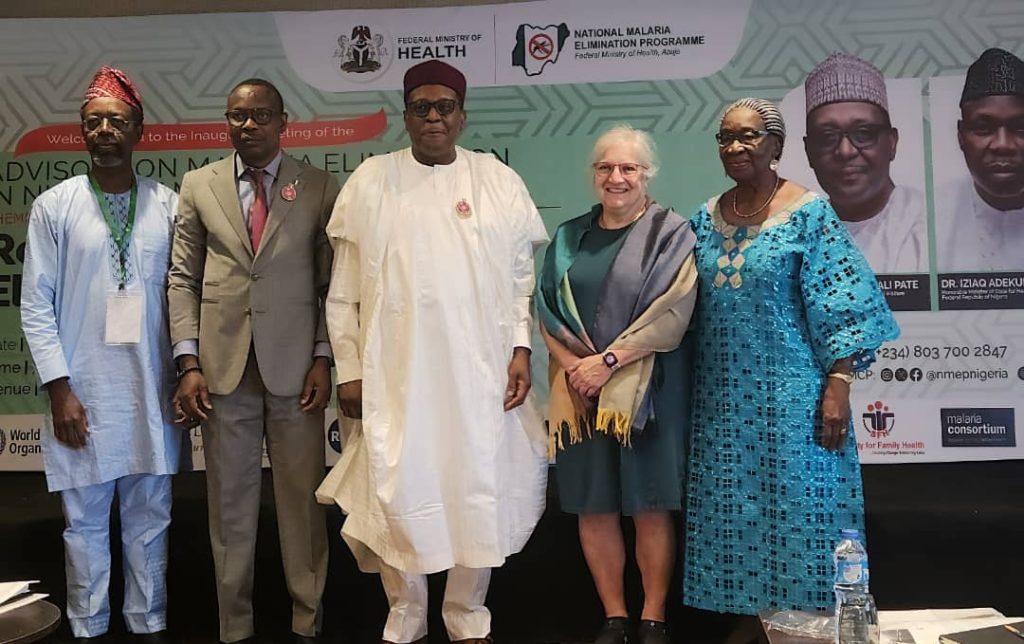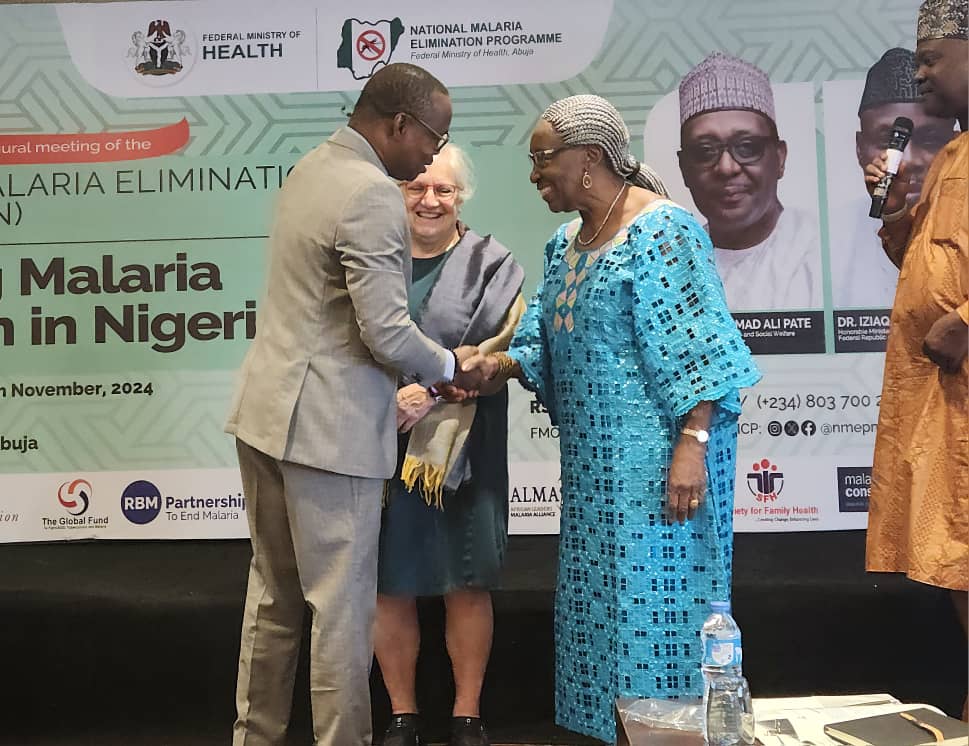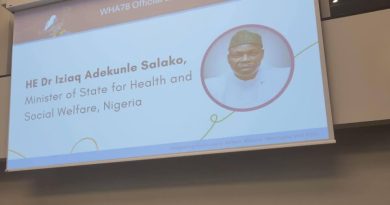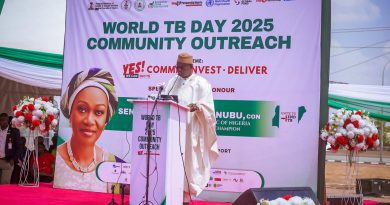Minister Says Control and Elimination of Malaria In Nigeria Is central To the 8 Point Agenda of Tinubu
The Minister of State for Health and Social welfare, Dr. Iziaq Adekunke Salako has said that control and elimination of malaria in Nigeria is central to the 8-point agenda of President Bola Ahmed Tinubu. He stated this at the inaugural meeting of the Advisory For Malaria Elimination in Nigeria (AMEN) held on Monday 25th November, 2024 at the Transcorp Hilton hotel, Abuja. Addressing global experts and key stakeholders, Salako called for a reflection on the efforts of the country in line with the Rethinking Malaria Elimination concept and to review implementation strategies as well as harness the promising horizons in the fight against malaria.
“With Nigeria having the highest burden of malaria in the world, the disease is not only a major driver of our unenviable morbidity and mortality rates, it also contributes significantly to economic hardship, food insecurity and perpetuates poverty. The control and elimination of malaria in our country is therefore a central element in achieving the 8 priority agenda of President Bola Ahmed Tinubu GCFR especially with respect to food security and fighting poverty.

“Against this background, the frontal attack on our malaria burden through innovative initiatives like this advisory group aimed at reinvigorating the Nigeria Malaria Elimination Programme is an imperative. These initiatives are expected to put Nigeria better in tune with the vision of the World Health Organization and the global malaria community to eliminate malaria from our world and contribute to delivering on the core presidential priorities.
“As we look ahead, the rethinking malaria elimination initiatives present us with an opportunity to redefine our goals and approaches, committing us to enhanced surveillance systems, adopting innovative technologies, expanding private sector involvement, strengthening community engagement and adopting multiple mutually reinforcing interventions. These initiatives are critical in addressing the emerging challenges, including drug resistance and the need for more resilient healthcare infrastructure”, Salako noted.
The former Minster of State for Environment said Nigeria is one of the top 10 countries in the world most vulnerable to climate change which has implications for its malaria elimination agenda. He added that stakeholders must remain unwavering in their commitment and continuously adapt strategies factoring the effects of climate change, migration and other environmental factors.
“We must remain vigilant and proactive, leveraging on data-driven insights to guide our interventions and policies. For us to succeed, the support and collaboration of every stakeholder, from government agencies, private sector, international partners, healthcare workers, and the communities we serve must be harnessed and coordinated”

He said the adoption of the Sector-Wide Approach (SWAp) which emphasizes coordinated and harmonized efforts across all levels of the health system is critical to Nigeria’s malaria elimination agenda.
“Leveraging on the present high level political commitments, the rich supply of technical know-how and the robust coordination offered by SWAp, we should rapidly ramp up our malaria elimination activities, expanding access to both prevention and treatment services including vector control and ensuring efficient utilization of resources. Several initiatives in the past including the National Malaria Strategic Plan and Nigeria End Malaria Council has so far not been able to deliver on its targets. Let us therefore learn from these past experiences, renew our resolve to overcome whatever challenges in our path and move the malaria free Nigeria from vision to reality starting with the target of reducing malaria prevalence and mortality to not more than 10% by 2025”, the Minister said.




